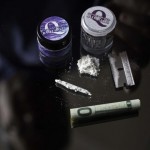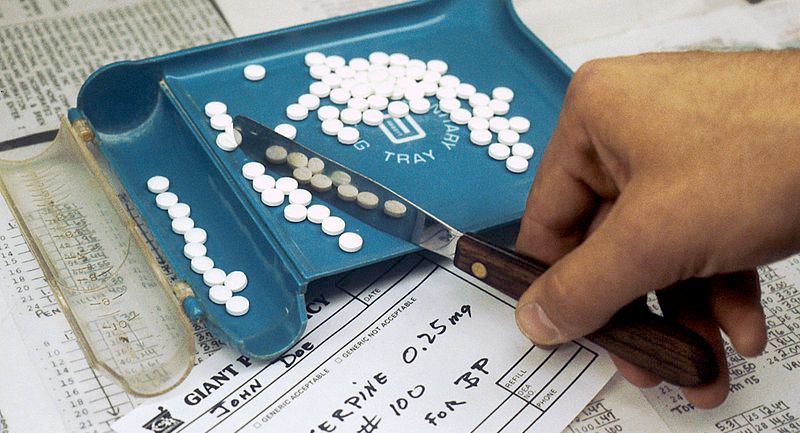Posts
Governor Tom Wolf revisits the Opioid Epidemic in Pennsylvania
/in Ask the Governor, Media, News, Video /by PAMattersGovernor Tom Wolf on the Opioid Epidemic in Pennsylvania
/in Ask the Governor, Media, News, Video /by PAMattersNew Department in Limbo
/in News /by PAMattersThe first new state department since 1995 was to be created in July, under Act 50 of 2010. To date, however, the Corbett administration has not taken the steps to establish a new, cabinet-level Department of Drug and Alcohol Programs.
Budget Secretary Charles Zogby appeared before the House Human Services Committee to explain the delay, and testified that financial pressures make the change impractical. Zogby notes that current finances warrant a look at the consolidation of departments, not the creation of a new one. “We are going to have to think fundamentally different about how we deliver state services in this commonwealth,” Zogby says.
Both the minority and majority committee chairmen think otherwise. “There are huge costs in human suffering, crime, lost work productivity and increased health care as a result of leaving addictions untreated,” says Democratic Chairman Mark Cohen (D-Philadelphia), who says inaction will not save money. “The argument by talking about all the budget pressures you’re under, I think you’re making a perfect argument about why we need this new department,” adds GOP Chair Gene DiGirolamo (R-Bucks).
Pennsylvania currently has a Bureau of Drug and Alcohol Programs within the Department of Health. The new law would elevate that bureau to a cabinet-level department. Supporters say a central agency will better coordinate treatment and prevention efforts. Zogby counters that better management of the existing 25 state programs that address addiction could accomplish the same goals.
New Law Holds Drug Dealers Accountable
/in News /by PAMattersOne of the 46 new laws that Governor Tom Corbett signed, on Thursday, will reclassify the offense of drug delivery resulting in death. The Pennsylvania District Attorneys Association (PDAA) tells us a 2005 state Supreme Court decision tied prosecutors’ hands by requiring that they prove the drug dealer acted with malice. “It became almost impossible to prove because it was a two-party transaction and one of the parties was dead, and unable to testify as to what was going on,” says PDAA executive director Richard Long.
Now, if you sell – or otherwise provide – illegal drugs to a person who dies a result, you would face a first degree felony. The maximum penalty is 40 years behind bars. “Obviously we think that is more in line with the gravity of the crime that has been committed,” Long tells us. The new law takes effect in 60 days.
Combined with the new ban on bath salts and other synthetic drugs, Corbett’s signature on HB 396 makes it the second of the PDAA’s priorities to be enacted in the past few weeks. They hope lawmakers will vote to close several Megan’s Law loopholes in the fall.
Among the several dozen other new laws signed this week is SB 101, which will increase the penalties for public officials who violate the open meeting requirements of the Sunshine Act. SB 260 will bring Pennsylvania in line with Centers for Disease Control recommendations that call for HIV testing to be a part of routine medical care (though you can still opt out).
Finally, another ‘blue law’ bites the dust. Thanks to SB 419, you’ll soon be able to buy a motorcycle on Sunday.
Testifiers: PA Needs RX Drug Monitoring Program
/in News /by PAMattersPrescription drug abuse is an epidemic in Pennsylvania, according to State Rep. Gene DiGirolamo (R-Bucks). In efforts to rein in the problem, the chairman of the House Human Services Committee has introduced legislation to create a Pharmaceutical Accountability Monitoring System to give doctors and pharmacists the ability to monitor people they suspect of doctor shopping or pharmacy shopping. “Then they’ll be able to tell this person that – hey – I’m not going to write this prescription because you’ve been at Dr. so-and-so yesterday for the same thing,” DiGirolamo tells us.
The House and Human Services Committee held the first of two hearings on HB 1651 Thursday. A litany of speakers urged lawmakers to act on the bill. “Pennsylvania is awash in prescription drugs of addiction, and many of them are tragically lethal. The streets are full of prescription drugs of addiction,” said Deb Beck, president of the Drug & Alcohol Service Providers Organization of Pennsylvania. Others pointed to 2005 data that show nearly 1 in 20 Pennsylvanians used an opioid for non medical purposes in the past year.
DiGirolamo says the cost to the state would be negligible because the bill gives pharmacists the responsibility of entering the information into the statewide database. The Pennsylvania Pharmacists Association supports the initiative. “Pharmacists probably more than anyone see the effects of diversion and abuse, and are put in the hard decision point of whether to dispense or not,” said Pat Epple, Association CEO. Epple, however, did point out that the bill would not be without costs to pharmacies. She also raised the point of “mail order” pharmacies, which would not be covered by the bill.
DiGirolamo tells us 47 other states have already put similar tools in place. A second hearing has been scheduled for next Thursday, because so many people expressed interest in testifying. Details of the bill are still being hammered out.
Welcome to PAMatters.com, a new source for news and commentary from Pennsylvania’s capital. In addition to video, audio and pictures from the stories and events that affect YOU, you’ll also get some behind-the-scenes analysis via blogs from our award-winning staff of journalists.






